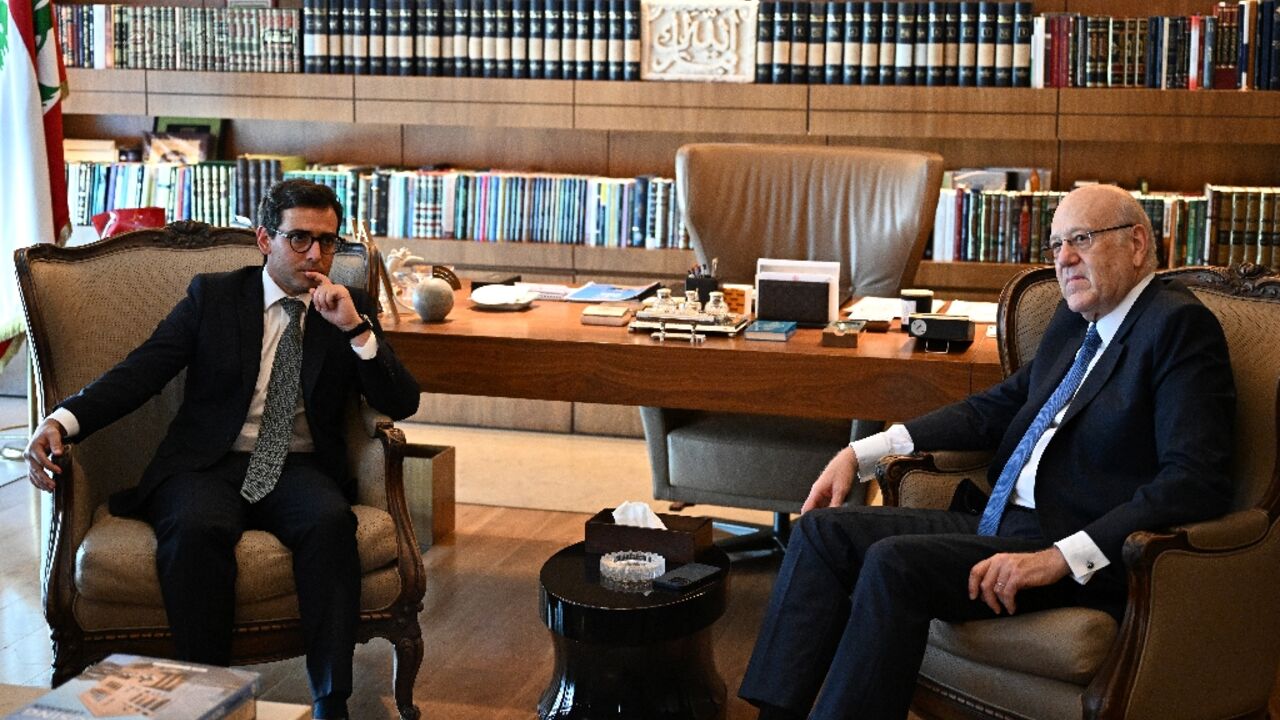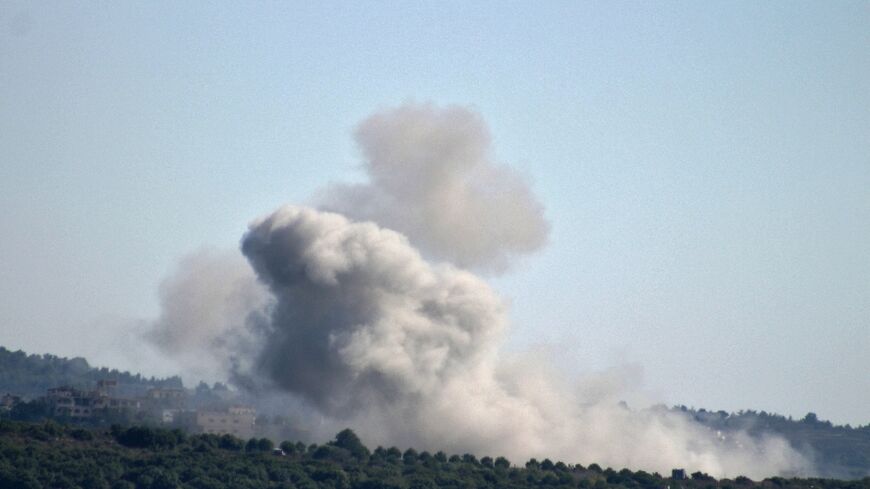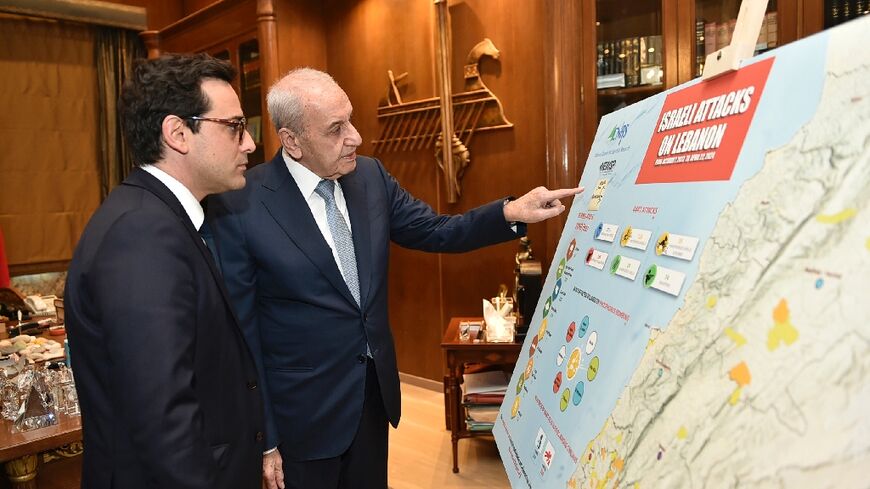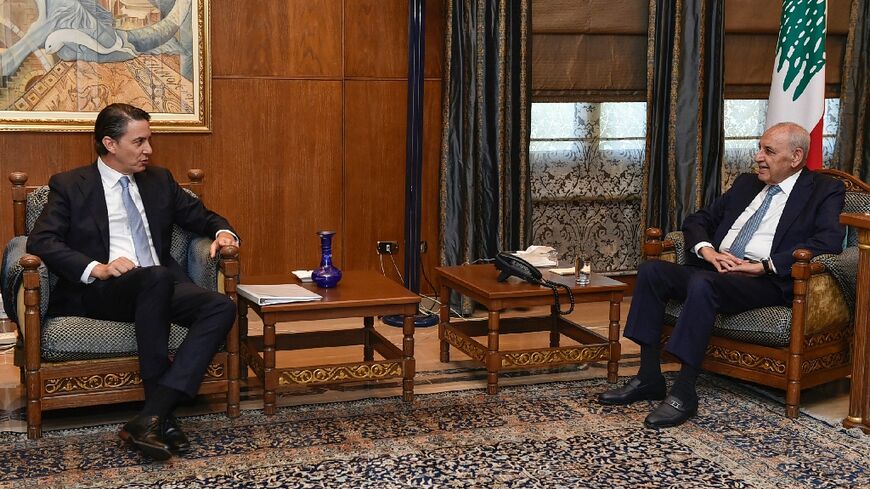French foreign minister says Gaza truce 'necessary' for regional peace

French Foreign Minister Stephane Sejourne said Thursday from Beirut that a cease-fire in Gaza was "necessary" for peace in the region including Lebanon, as talks resumed in Qatar aiming to end the conflict.
"We are all worried about the regional situation," Sejourne said after meeting parliament speaker Nabih Berri, an ally of Lebanon's Hezbollah group.
France "supports Lebanon, and in this context and in the context of regional peace, we hope for the ceasefire... in the Gaza Strip, which... will be necessary to guarantee peace in the region," he said.
Hezbollah has traded near daily fire with the Israeli army since the Palestinian militant group Hamas's October 7 attack on Israel sparked the Gaza war.
Fears of an all-out conflict have spiralled since an Israeli strike killed a top Hezbollah commander last month.
Hours later, an attack blamed on Israel killed Hamas political leader Ismail Haniyeh in Tehran, prompting both Hezbollah and Iran to vow retaliation.
Before his arrival, Sejourne said in a statement on X that his visit aimed to "support ongoing diplomatic efforts towards de-escalation in the region".
His trip comes a day after US envoy Amos Hochstein visited Beirut and said there was "no more time to waste" for a Gaza ceasefire, noting it would "also help enable a diplomatic resolution" in Lebanon and prevent a wider war.
In Beirut, Sejourne met with other senior officials including Prime Minister Najib Mikati and Foreign Minister Abdallah Bou Habib.
He said he carried a "very simple" message of de-escalation addressed to Lebanese authorities "and which will also be addressed to other countries in the region".
- Peacekeepers' mandate -
Sejourne expressed support for the United Nations Interim Force in Lebanon, saying France was working to "reinforce and provide a mandate" for the peacekeepers for the next 12 months, as its expiry approaches at the end of August.
He also said France supported "reinforcing the Lebanese army" in the country's south.
United Nations Security Council Resolution 1701 ended a 2006 conflict between Israel and Hezbollah and called for the Lebanese army and United Nations peacekeepers to be the only armed forces deployed in south Lebanon.
Calls have increased for the full implementation of the resolution as a way of ending the current violence.
Speaker Berri expressed Lebanon's "keenness on the need to extend" the UNIFIL mandate.
The cross-border clashes have killed some 570 people in Lebanon, mostly Hezbollah fighters but including at least 118 civilians, according to an AFP tally.
On the Israeli side, including in the annexed Golan Heights, 22 soldiers and 26 civilians have been killed, according to army figures.
Hezbollah claimed a series of cross-border attacks Thursday, including on north Israel's Shamir with "volleys of Katyusha rockets" in retaliation for a deadly strike a day earlier in south Lebanon's Marjayoun.
The Israeli military said around 25 "projectiles were identified crossing from Lebanon into Israeli territory", some falling in the Shamir area, reporting no injuries.
Lebanon's official National News Agency reported Israeli strikes in various areas of south Lebanon.
Hezbollah in a statement commemorating the end of the 2006 war said it would continue "to defend Lebanon", despite "ongoing Israeli threats... assassinations".
Hezbollah's deputy chief Naim Qassem said Hochstein's visit Wednesday was "for show".
"The Americans want to say they are doing something but there is a vacuum," he told his group's Al-Manar television channel.





